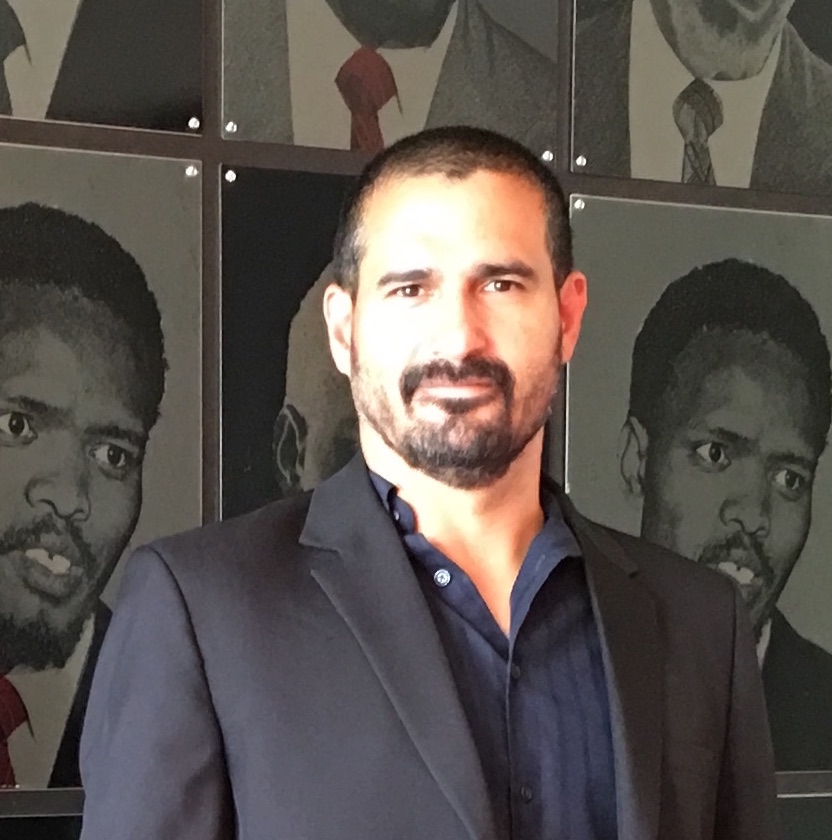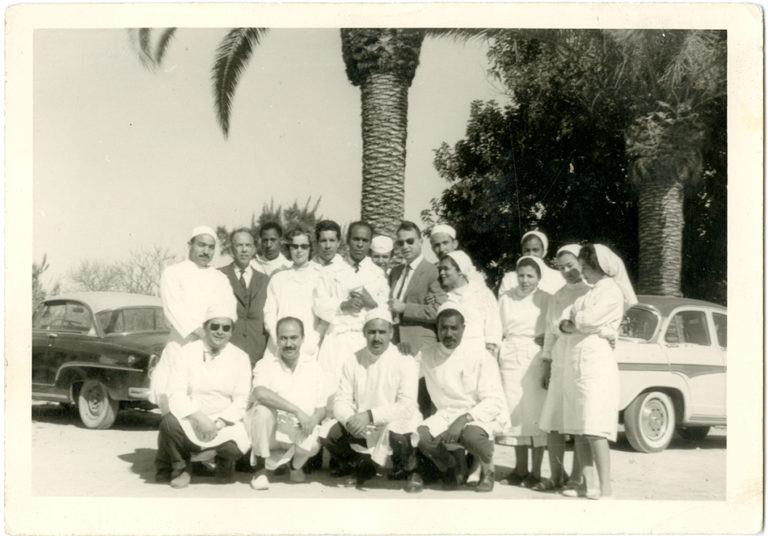
A common error in conceiving decolonial theorizing as a standard form of critical theory or as an extension of mainstream postcolonial studies is the assumption that its approach to religion or spirituality is bounded by secularism. It is often forgotten that while the emergence of postcolonial studies is connected to theories of literature and culture in the secular humanities, what is typically recognized as decolonial theorizing came into being in largely inter- and trans-disciplinary contexts that included scholars, artists, activists, and community organizers who were critical of modern western secular ideologies.[1] Some of them also openly drew from and sought to contribute to the study of religion and religious thought.
Often the result of limited engagement with only very few authors in the field, the idea of decolonial thought as an intellectual production that can only consider “the religious” or “the spiritual” through the lenses of western secularism appears to be a convenient trope in the effort to reassert the authority and contemporary relevance of certain forms of scholarship, particularly religious studies, as well as some forms of philosophy and theology. The result is a reduction in the possibilities of profound engagement between these areas and decolonial thought, even as this work has already been taking place among those of us who have been trained in or have been contributing to areas such as religious studies, philosophy, and decoloniality for more than a short time.
One would only have to take a quick look at works of senior and distinguished figures in decolonial thinking, such as Enrique Dussel and Sylvia Marcos, to identify profound critiques of secularism and sophisticated ways to approach religion and spirituality. Related critiques of secularism appear in the works of Eduardo Mendieta, who has a long trajectory of making contributions to philosophy and religious studies, and of the intelectual-militante Catherine Walsh, who draws from African diaspora and Indigenous views in her account of community formation, decolonization, and the overcoming of the binary between the natural and the human.
It is also important to recognize the impact of African diaspora spiritualities in the works and perspectives of Afro-Caribbean decolonial thinkers such as Yuderkys Espinosa-Miñoso and Agustín Lao-Montes, and the contributions of the also Caribbean Ramón Grosfoguel to the enrichment of Critical Muslim Studies and the critique of Islamophobia. More recent, but already well established and leading scholars engaging religion and decoloniality include Mayra Rivera, Santiago Slabodsky, and An Yountae, among others.
The idea of decolonial thought as an intellectual production that can only consider ‘the religious’ or ‘the spiritual’ through the lenses of western secularism appears to be a convenient trope in the effort to reassert the authority and contemporary relevance of certain forms of scholarship.
My own work on decolonial theorizing, the decolonial theory and philosophy of religion, and the critique of modern western secular ideologies and the coloniality of secularism, is rooted in conversations and exchanges about related topics with friends, teachers, and mentors before and during my college years in the “unincorporated territory”/colony of Puerto Rico.[2] In conversations on the island-colony with scholars such as the late Jesuit priest and historian Fernando Picó and the theologian and humanities professor Luis N. Rivera Pagán, it was clear that the critique of colonialism could not be consistently carried out without the critique of secularism and vice-versa. I took this to be a foundation already established long before I became interested in it, even if kept in a marginal position within and by a largely secular (and Eurocentric) left, as well as the hegemonic liberal—modern/colonial and secular—arts and sciences.
I was fortunate to find a similar conviction in important teachers and interlocutors while a doctoral student in religious studies, philosophy, and Africana studies in the 1990s. They included the Caribbean and Afro-Jewish philosopher Lewis R. Gordon and Enrique Dussel. Gordon held a PhD in philosophy and was appointed in the Department of Religious Studies and the Department of Africana Studies at Brown University. He offered undergraduate and graduate courses that engaged the three areas simultaneously. Challenging the divide between “the religious” and “the secular,” while also critically engaging colonialism and antiblack racism was a given in this context. It was similar in my work with Enrique Dussel, also while a graduate student, and later on in my exchanges with Sylvia Marcos, which started when I was an Assistant Professor in the Department of Religion at Duke University. At Duke, I worked closely with Walter Mignolo, who is sometimes taken as a poster person for secularism even as his work makes important contributions to the critique of western modernity, including the coloniality of its secularism, as I have pointed out elsewhere.[3]
In short, neither the critique of secularism and the concern with understanding the relevance of spirituality for decolonization, nor the effort to decolonize philosophy and religious studies as fields of study are new. Making it appear so strengthens the coloniality of the liberal arts and sciences.
Lessons from Frantz Fanon 60 Years after His Passing
It won’t be difficult to include many more references to scholars of decolonization who challenge in various ways the coloniality of the secular/religious divide, or whose work contributes to the decolonization of religious studies. Some authors are very explicit in their critique of secularism and their appraisal of the role of spirituality in their searches for decolonization—take Gloria Anzaldúa or M. Jacqui Alexander, for example—while others are less explicit or even suspicious about highlighting the links between decolonization and anything “religious.” However, one can often find contributions to the critique of the coloniality of secularism even among authors who would otherwise appear to be indifferent or critical of religion or spirituality. In this essay, I will share some reflections about contributions to the critique of secularism in the work of Frantz Fanon.
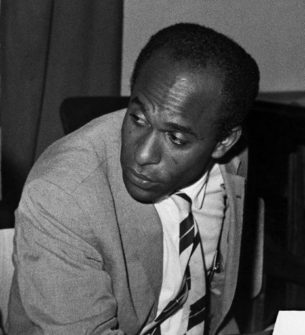
Fanon’s work is a major reference in Black and Africana studies, ethnic studies, postcolonial studies, and decolonial thought, among other areas. His work preceded, anticipated, prepared the ground, and continues to serve as guide and inspiration for many contemporary theorists of antiblackness, coloniality, and decoloniality. One of my main arguments here is that Fanon’s work offers valuable lessons in the task of critiquing the coloniality of secularism and that these lessons remain relevant today. One important part of these lessons is that decoloniality is not simply a topic of investigation, but part of a more encompassing decolonial turn that involves the comprehensive decolonization of knowledge, power, and being.
It is already well known that Fanon engaged in and contributed to the projects of decolonizing philosophy, psychology, and psychoanalysis. I propose here that his work offers important considerations for decolonizing religious studies as well. In that sense, this essay continues a central topic in my previous contribution to this space.
I turn to Frantz Fanon here in the context of celebrating the 70th anniversary of the publication of his massively influential work Black Skin, White Masks, originally published in 1952, and of the recent commemoration of the 60th year of his passing and the publication of The Wretched of the Earth. Fanon is often depicted as a thoroughly secularist author with little more than suspicion or disdain for anything religious or spiritual. This caricature makes him a good figure through which to demonstrate the limits of secularist interpretations of decolonial thought. Fanon’s work provides important considerations in the exploration of the coloniality of secularism and religious studies while also indicating the generative possibilities that emerge in challenging the strict divide between the religious and the secular.[4]
I refer to Fanon as a decolonial thinker, a designation that he did not use, because he carefully developed the concept of decolonization as a creative process of unthinking and rethinking, as well as undoing and redoing, in the path towards a new idea and practice of being human. He understood this practice as a reconstitution of the open-ended web of human interrelationalities and as the amplification of relations of uninhibited and free giving and receiving that are part of what Fanon refers to as the “world of you,” which is at the core of the idea of decoloniality.[5]
Lesson 1: Understanding the Catastrophe of Modernity/Coloniality
One important contribution of Fanon’s work to the study of religion, philosophy, and theology concerns the entanglement between modernity and coloniality. Fanon’s theorizing reflects an awareness of the overwhelming colonial dimension and effects of modernity. He was conscious that the globalization of western modernity and its connection with the rationalization and naturalization of colonialism and racial slavery represented a veritable catastrophe for societies across the world and for humanity as a whole.[6] This catastrophe has had profound impacts on even the most basic of human activities, such as linguistic and erotic relationships, as Fanon sought to demonstrate in the initial chapters of his classic Black Skin, White Masks.[7]
Using contemporary concepts, one might say that for Fanon, modernity/coloniality has always already shaped the subject, the object, and the context of any potential academic investigation. This means that decolonization is not simply a political practice that is separate from academic work, but the very condition of possibility for countering the coloniality of the human sciences. Since hegemonic academic disciplines, including philosophy and religious studies, are grounded on dominant views of modernity, the critique of modernity should serve not only as a preamble to any academic study, but also as an ongoing activity.
Using contemporary concepts, one might say that for Fanon, modernity/coloniality has always already shaped the subject, the object, and the context of any potential academic investigation.
Fanon’s references to “religion” or spiritual practices in his work cannot be disentangled from his insight about the active role of colonialism and the impact of modern/colonial catastrophe. For example, under modern/colonial catastrophe, the concept of religion can be used at one moment to minimize the standing of one group in one context—e.g., “you are merely religious”—while at another moment serving as a form of “whitening”—e.g., “I am also religious.”[8] Sometimes the two apparently opposite views appear in the same context but are held as true by different parties, or sometimes even by the same party. That is, Fanon never finds “religion” purely out there: he finds “religion” always in context of colonization and global coloniality; always taking unique forms in varied contexts of catastrophe.
Lesson 2: Fanon’s Decolonial Turn against the Coloniality of the Human Sciences
One implication of Fanon’s profound awareness of the impact of coloniality and its creation of shifting and multiple layers of meaning is that one cannot take at face value his statements about religion, among many other topics. Perhaps because he was a psychiatrist and a militant, rather than a traditional scholar of philosophy or religion, the theoretical dimension of Fanon’s texts cannot be disentangled from practice. As a result, what Fanon wrote at any given point is often more complex than what it appears at first sight.
Approaching Fanon’s texts as traditional works in the liberal arts and sciences is a common mistake, a perhaps inevitable consequence of the incorporation of his writings into the academy, but one that can and should be corrected. What Fanon seeks to do with his writing is connected to his therapeutic and revolutionary work and frequently different from what any specific statement in his written work indicates. Often when reading Fanon, it is as if his writing suggests that more important than what it says is the process of thinking and doing that gave birth to it, as well as the unfinished project of which it was and continues to be part. If so, the best way to engage Fanon’s texts is not by seeking to have the “right” interpretation of them—in fact, his writings often resist these efforts—but participating in the practice of decolonial thinking/doing and doing/thinking that was predominant in Fanon’s practical/theoretical and theoretical/practical work.
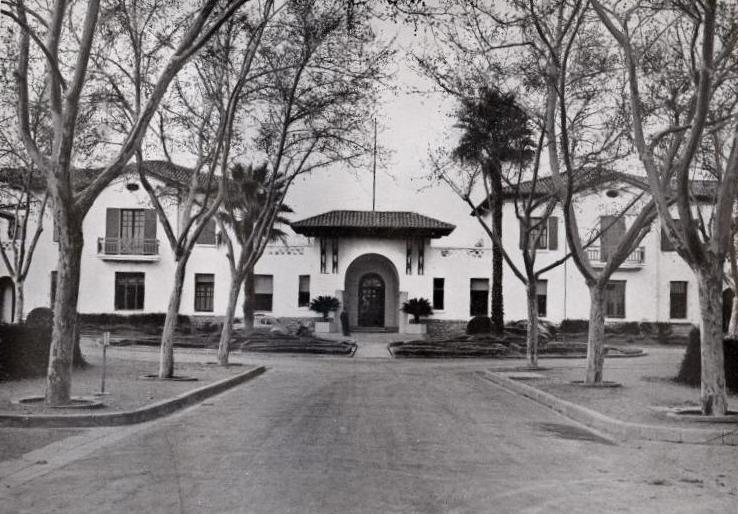
This is one important dimension of the project of countering the coloniality of the human sciences, including religious studies: decolonizing knowledge is not the same as simply writing about decoloniality or decolonization. Decolonizing philosophy, religious studies, or theology is likewise not only a matter of diversifying theoretical sources or engaging new topics.
Reducing the project of epistemic decolonization to a question of diversifying topics and sources leads to a reassertion of the priorities and ethos of the modern/colonial and secular liberal arts and sciences, even in projects that describe themselves as decolonial. This is a dangerous path that privileges the position of the presumed “expert” on decoloniality over the multiple actors, agents, creators, and thinkers engaged in decolonial thinking and practice.
Fanon proposes a substantive decolonial turn, one that transcends the limits and that counters the coloniality of the established liberal arts and sciences. His work teaches that decolonizing knowledge involves not only refusing to ignore the role of coloniality in shaping the object of one’s investigation, but also redefining the tasks and priorities of the scholar and the intellectual.[9] This means that the decolonization of religious studies and other fields cannot take place without a challenge to the model of the scholar, the organization of scholars—e.g. departments, centers, institutes, and professional associations—and the training of scholars within the liberal arts and sciences.
Lesson 3: Countering the Coloniality of the Religion/Secularism Divide
A third lesson from Fanon’s work concerns the coloniality of the religious/secularism divide and the need to overcome it in decolonization struggles. Fanon fought for decolonization, understood as generative counter-catastrophic activities in the effort to create “the world of you,” a view that is connected to his conception of healing.[10] One cannot forget that Fanon was a trained psychiatrist and that his preferred method was social therapy, a form of therapy that sought to bring mental health through the process of creating normal—by which it should be understood non-catastrophic—social relations and a social environment.
As a paper written by Fanon and his intern Jacques Azoulay while Fanon was the Director of the Blida Psychiatric Hospital in Algeria, indicates, Fanon entirely rejected the thesis that there is something inherently problematic with practices or ideas that are often referred to as spiritual or religious. Indeed, even if beyond the scope of this piece, Fanon’s work with Azoulay speaks to Fanon’s multicultural and multireligious view of a decolonized Algeria, and of the ways in which the French empire approached and managed racial hierarchies in France and its colonies. This explains how a Black person from the Caribbean could be appointed as doctor and hospital director, and an Algerian Jewish person could become his first intern in a psychiatric hospital, where the Arab and Berber locals were for the most part patients and nurses.[11]
Fanon entirely rejected the thesis that there is something inherently problematic with practices or ideas that are often referred to as spiritual or religious.
For the purpose of this essay, I underscore that Fanon did not subscribe to the belief that overcoming religion is necessary for decolonization to take place, or to the notion that decolonization would lead to a religionless society. This is reflected in Fanon’s and Azoulay’s warning to psychiatrists and other scientists of epistemic arrogance and epistemic racism that “some conducts, some reactions can appear ‘primitive’ to us, but that is only a value judgment, one that is both questionable and bears on poorly defined characteristics.”[12] They were particularly referring to the idea that “genies” produced madness, a concept that was normal in Algeria as opposed to other contexts where a different perception of the world was held or where social behavior revolved around different premises.
In short, Fanon invited the critical study of human reality, including what we often call religion, with attention to the massive effects of modern/colonial catastrophe. From a Fanonian point of view, Marx’s dictum that “For Germany, the criticism of religion has been essentially completed, and the criticism of religion is the prerequisite of all criticism” could perhaps be reformulated as follows: “For Africa, the African diaspora, the Global South, and the entire world, the critique of modern/colonial catastrophe remains unfinished, and its critique is the prerequisite of all criticism.” Neither Fanon’s view of criticism nor his conception of a healthy individual or society imply the idea that religion or spirituality must be eradicated. Quite the contrary, Fanon believed that activities that are often called religious, like the “regular celebration of Muslim feasts” and the establishment of “a Moorish café” in the context of his work with male Muslim patients, played an important role in their healing process.[13] The other side of this practice was the rejection of the simple implantation and uncritical adaptation of European therapeutical techniques in Algeria. That is, for Fanon the problem sometimes lies with the “science” or scholarly approach rather than with any specific “religion” or similar object of investigation. The decolonization of knowledge, and, along with that, the decolonization of being and power, remain at the forefront of Fanon’s knowledge producing activities.
Lesson 4: Fanon’s Unlearning, Relearning, and Post-Secular Epistemic Practices
Fanon not only learned about Islam and developed insights about the study of religion in the context of his psychiatric hospital and his visits to Algerian towns. He also learned about Islam from Muslim intellectuals and recognized the potential contributions of Islam to the struggle for decoloniality. His words to the Iranian thinker ‘Ali Shari‘ati are illuminating in this context: “I would like to emphasize, more than you do yourself, your remark that Islam harbours, more than any other social powers of ideological alternatives in the third world (or, with your permission, the Near and Middle-East), both an anticolonialist capacity and anti-western character” (Alienation and Freedom, 668).
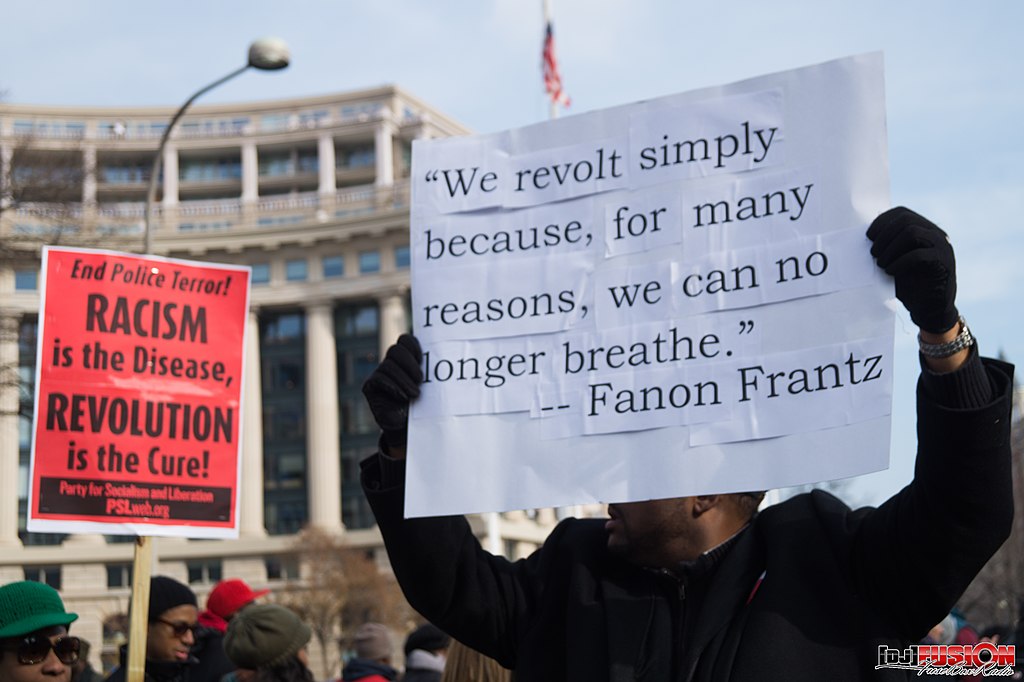
In his letter to Shari‘ati, Fanon also highlights the importance of what he considers to be the “mission” of Shari‘ati and other Muslim intellectuals to “make good use of the immense cultural and social resources harboured in Muslim societies and minds, with the aim of emancipation and the founding of another humanity and another civilization” (668–69). Here Fanon is anticipating his notes about combative decolonial intellectual activity in The Wretched of the Earth, a theme that, as the Frantz Fanon Foundation has recently made clear, is as relevant today as ever.[14]
Fanon also shared with Shari‘ati his concerns about the risks and limits of “reviving sectarian and religious mindsets,” and of any project that sought to bring populations closer to their past more than to promote the birth of an “ideal future.” While Fanon took a different path from Shari‘ati, Fanon concludes his letter by noting that he is “persuaded that both paths will ultimately join up towards that destination where humanity lives well” (Alienation and Freedom, 669).
It is also important to recognize that, while every indication is that Fanon was an atheist, his own work is infused with religious thought and contains a considerable number of religious metaphors. In Against War: Views from the Underside of Modernity, I reflect on and build upon the relationship between Fanon’s work and those of Christian philosophers Søren Kierkegaard and Karl Jaspers, as well as the Jewish philosopher Emmanuel Levinas. I seek to demonstrate that Fanon conceives of subjectivity as a gift and that he views the damnés as those who cannot give because of what had been taken from them. This means that decoloniality is about the restoration of circles of giving and receiving in contexts of catastrophe, which opens up considerable new questions and considerations, including ethical, political, religious/spiritual, and theological ones.
Lesson 5: Open Paths in Conversation with a Post-Secular Fanon
Fanon’s conception of subjectivity, damnation, and decolonization challenge the premises of Cartesian rationalism, Enlightened foundationalism, and modern western political theory—all of which serve as the basis to certain forms of western secularisms. His view of the self as a gift and his intersubjective account of healthy individuality and social relations draw from and are compatible with a large variety of sources, including so-called religious or spiritual formations. This consideration calls for more explorations of connections between Fanon’s view of decolonization and non-secular or post-secular accounts of reality, including the African diaspora spiritualities that are found in Fanon’s own island of Martinique and through the Caribbean, some of which probably informed Fanon’s thinking and worldview too.
I am aware of the argument that Fanon seemed to make concessions to Catholicism and Islam that he did not extend to African diaspora practices.[15] One could debate the extent to which Fanon’s statements about any specific religions are meant to be a description of such religions per se, or if they are meant as a critical analysis of the entanglement between specific religious practices and certain colonial projects. One could also debate whether Fanon had a specific view about African diaspora religions, or whether his approach to local religious practices in Algeria offers an example of approaching religious practices everywhere that would lead to a different conceptualization of other religions, including settings with African diaspora religious practices. This goes back to the points about how to approach Fanon’s writings that I raised earlier.
For Fanon the problem sometimes lies with the “science” or scholarly approach rather than with any specific “religion” or similar object of investigation. The decolonization of knowledge, and, along with that, the decolonization of being and power, remain at the forefront of Fanon’s knowledge producing activities.
My suggestion here is that even if negative comments about African diaspora religions proved to be definitive about Fanon’s interpretation of these practices at any given point in time, this does not entail that parts of his thinking were not positively impacted by the Afro-Caribbean spiritual practices on the island of Martinique. I doubt that only Catholicism influenced Fanon’s sensibilities, but even if that were true, this also does not mean that there are not elements in Fanon’s thought that are significantly enriched when approached from African diaspora epistemologies and spiritualities. The thought of an author is often richer than the various opinions of the author. An exploration of the various ways in which Fanon’s thought might be and could still be entangled with African diaspora views would require work with practitioners. That is, practitioners of African diaspora spiritualities who have mobilized Fanon’s thought in their struggle against racism and colonization might be the best teachers here. The path is thus open for a continued post-secular process of unlearning and relearning as part of the unfinished project of decolonization, and Fanon remains an important companion.[16]
The author wishes to thank Atalia Omer for the invitation to contribute and thank both her and Joshua Lupo for their editorial suggestions.
[1] The secularism of mainstream postcolonial studies is perhaps most explicit in Edward Said’s call for “secular criticism” in texts such as The World, The Text, and the Critic, which is addressed critically in works such as William Hart’s Edward Said and the Religious Effects of Culture. For a discussion of genealogies of decolonial theorizing see, for example, Arturo Escobar, “Worlds and Knowledges Otherwise: The Latin American Modernity/Coloniality Research Program”; and Nelson Maldonado-Torres, “The Decolonial Turn,” in New Approaches to Latin American Studies: Culture and Power.
[2] Some of my writings that reflect these and other exchanges that took place through the late 1980s and, particularly, the 1990s include “Secularism and Religion in the Modern/Colonial World System: From Secular Postcoloniality to Postsecular Transmodernity,” in Coloniality at Large: Latin America and the Postcolonial Debate; “The Meaning and Function of Religion in an Imperial World,” in Postcolonial Philosophy of Religion; “Religion, Conquest, and Race in the Foundations of the Modern/Colonial World;” and “Religion, Modernity, and Coloniality,” in Religion, Theory, Critique: Classic and Contemporary Approaches and Methodologies.
[3] I expand on my view of Mignolo’s contributions to the decolonial theory of religion in “Religion, Modernity, and Coloniality.”
[4] Others have commented on Fanon’s conception of religion as it appears in his writings. Perhaps the most systematic account is Federico Settler’s 2009 doctoral dissertation at the University of Cape Town, entitled “Religion in the Work of Frantz Fanon.” Settler’s main arguments in the dissertation also appear in his 2012 article “Frantz Fanon’s Ambivalence Towards Religion.” My analysis here is based primarily on texts that appear in Fanon’s Alienation and Freedom, which was published after Settler’s dissertation and article, but this is not where the main difference between his careful study and my reflection here lies. This essay approaches the question of Fanon and religion in terms of the contributions of Fanon’s thinking to decolonizing religious studies and to critically engaging the religious/secular divide. In that sense, it does not aim to be an analysis of the various ways in which Fanon referred to religion in his work, which is Settler’s main focus. I am interested in the possibilities that Fanon’s thought opens up or invites the reader to consider more than on whether Fanon himself believed something or other to be the case. This is what I have taken to be a project of Fanonian meditations, which is different from scholarship on Fanon. This does not mean that this scholarship cannot make contributions to such Fanonian meditations.
[5] See Frantz Fanon, Black Skin, White Masks, 206. For a development of this interpretation of Fanon’s views on decolonization and his contributions to decoloniality see Nelson Maldonado-Torres, Against War: Views from the Underside of Modernity; Nelson Maldonado-Torres, “On the Coloniality of Being: Contributions to the Development of a Concept“; and Nelson Maldonado-Torres, Mireille Fanon Mendès France, Shahnaaz Suffla, Mohamed Seedat, and Kopano Ratele, “Fanon’s Decolonial Transcendence of Psychoanalysis.”
[6] Building on insights from decolonial theory and Fanon I have developed a view of modernity/coloniality as catastrophe elsewhere. See, for instance, “Outline of Ten Theses on Coloniality and Decoloniality”; “On Metaphysical Catastrophe, Post-continental Thought, and the Decolonial Turn” in Relational Undercurrents: Contemporary Art of the Caribbean Archipelago; “Afterword: Critique and Decoloniality in the Face of Crisis, Disaster, and Catastrophe” in Afterschocks of Disaster: Puerto Rico Before and After María; and “Prologue: Decolonial Psychology as a Counter-Catastrophic Science” in Decoloniality and Epistemic Justice in Contemporary Community Psychology.
[7] For a discussion of Fanon’s Black Skin, White Masks as a work of counter-catastrophic thought/science see Nelson Maldonado-Torres, “Outline of Ten Theses on Coloniality and Decoloniality” and “Prologue: Decolonial Psychology as a Counter-Catastrophic Science.”
[8] Lilia Ben Salem’s notes that a course that Fanon offered in Tunis included the following sentence in the context of discussing racism in the United States: “Religion is often conceived as a way of ‘becoming-white’.” See Frantz Fanon, Alienation and Freedom, 524.
[9] I thank the Aymara militant-intellectual Esteban Ticona Alejo for his acute observations about this many years ago. Ticona Alejo is the author of various works on Fanon and the “father of Indianism” in Bolivia, Fausto Reinaga, as well as the editor of Bolivia en el inicio del Pachakuti: la larga lucha anticolonial de los pueblos aimara y quechua. I also thank Walter Altino and members of the Atitude Quilombola movement in Brazil, with whom I learned important aspects of this lesson in theory and practice.
[10] See Nelson Maldonado-Torres, et. al., “Fanon’s Decolonial Transcendence of Psychoanalysis.”
[11] Citing an interview with Azoulay in 1998, Alice Cherki writes that: “Almost fifty years later, Jacques Azoulay reports that as an Algerian Jew he only became aware of Algeria ‘in Blida, while working with Fanon. That’s when I realized that there were Muslims—Muslims and a Muslim culture’” (Cherki, Frantz Fanon: A Portrait, 51). In an interview in 2007 with Numa Murard, Azoulay adds that “He [Fanon] sought first to inform himself about the specific culture of Algerian Arabs” and that “he was very active, I less so, although he dragged me along to ceremonies for treating hysteria in Kabylian villages, in which women having cathartic fits were chained down for entire nights” (quoted in Fanon, Alienation and Freedom, 191). Azoulay also stated that “Fanon’s intellectual approach enabled me to apprehend a content that I would otherwise have considered folkloric, and from the moment of that realization, I understood it wasn’t” (Cherki, Frantz Fanon: A Portrait, 52). Azoulay’s severed disconnection with the Algerian Arab community recalls Ariella Aïsha Azoulay’s analysis of “how France forced Arab Jews to adopt the European persona of Jew as citizen and see Arabs and Muslims as others” (see “Algerian Jews Have Not Forgotten France’s Colonial Crimes,”) and her thesis that, “The conversion of Algerian Jews into French citizenship destroyed thousands of years of Jewish life in North Africa” (“Unlearning Our Settler Colonial Tongues”).
[12] Fanon, Alienation and Freedom, 384.
[13] See Fanon, Alienation and Freedom, 371. Azoulay reported that Fanon was “very active” in getting to know “the specific culture of Algerian Arabs” and of Algerian society, and that the organization of the Moorish café “provoked sarcastic criticism from the other doctors” (Fanon, Alienation and Freedom, 191). Numa Murard, who interviewed Azoulay in 2007, notes that “Fanon permet aussi de redonner vie aux pratique religieuses, que l’hôpital…a tendance à détruire.” See Numa Murard, “Psycothérapie institutionnelle à Blida.”
[14] See Mireille Fanon Mendès France, and Nelson Maldonado-Torres, “For a Combative Decoloniality Sixty Years after Fanon’s Death: An Invitation from the Frantz Fanon Foundation” and the responses to the call by organizations such as the Blackhouse Kollective, the International Imagination of Anti-National Anti-Imperialist Feelings (IIAAF), La Colectiva Feminista en Construcción, and the Grupo Latinoamericano de Estudio, Formación y Acción Feminista (GLEFAS).
[15] Settler’s previously cited work, for instance.
[16] Learning about this with and from these practitioners will be part of my own efforts in a project that I am leading with Carter Mathes on “Understanding Spirit: Black Religious Practice and the Search for Racial Justice,” hosted by the Rutgers Advanced Institute for Critical Caribbean Studies and funded by The Henry Luce Foundation. The three-year project starts in May 2022 and will include the participation of Arts for Art in New York, Nana Sula Spirit in New Orleans, and Corredor Afro as well as the Corporación Piñones se Integra in Puerto Rico. There may be another example here of decolonizing religious studies (as well as philosophy, the philosophy of religion, and theology) in theory and practice, which could provide material for one or more reflections that continue the discussion in “Religious Studies and/in the Decolonial Turn” and this entry.

